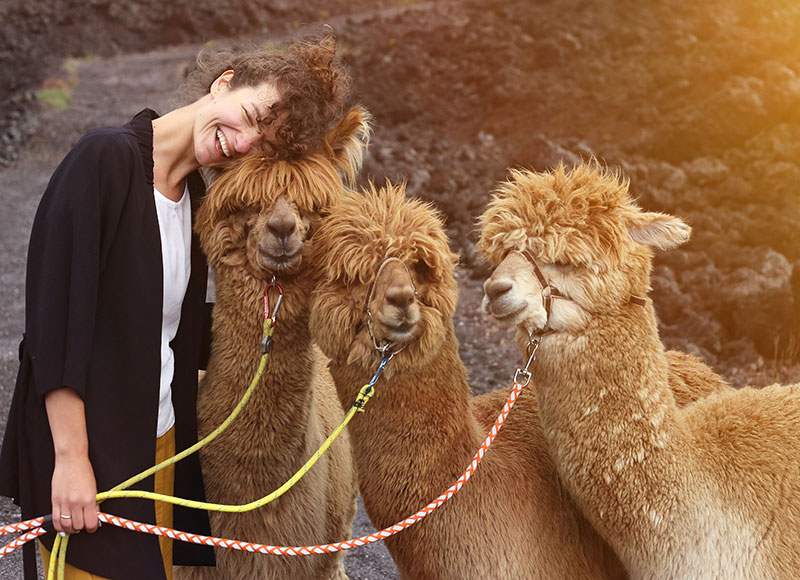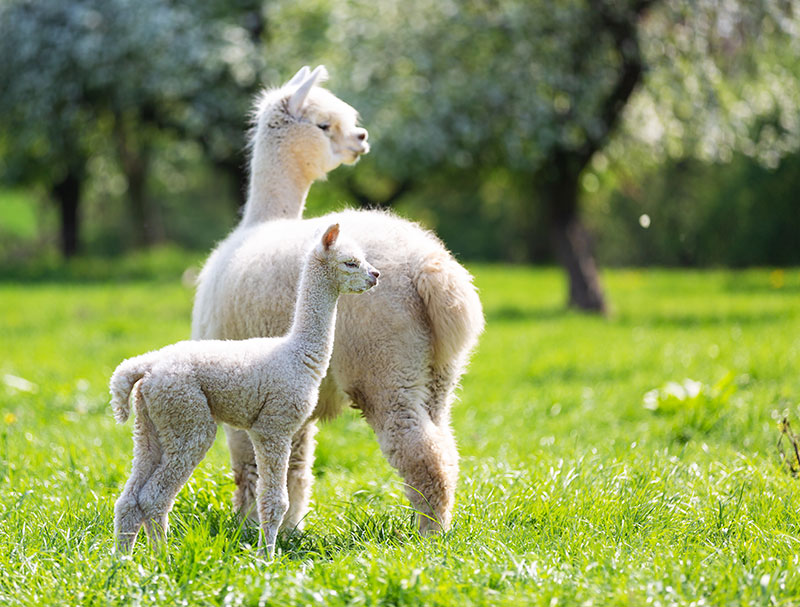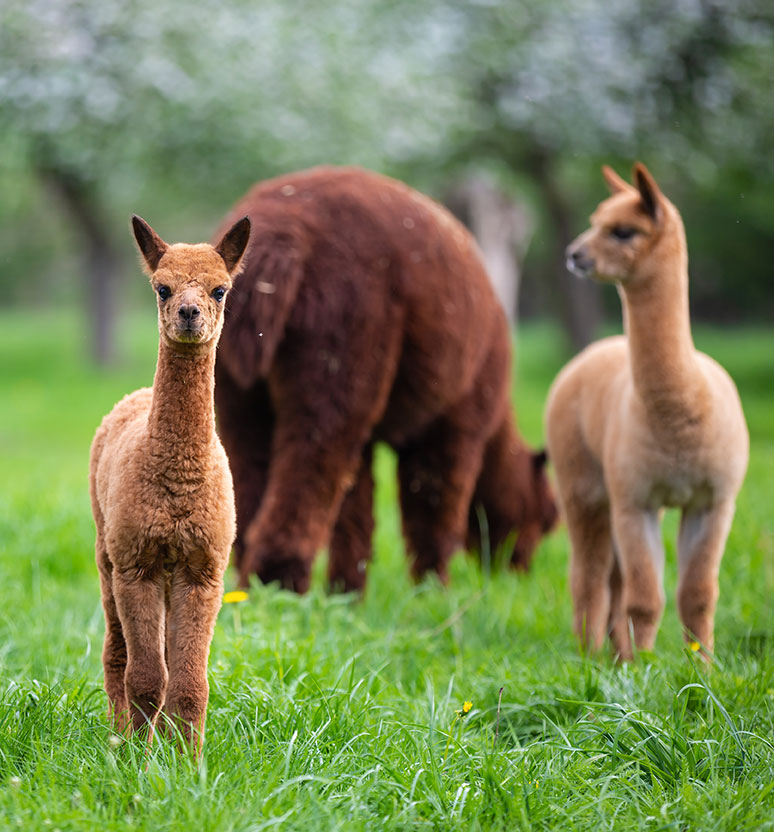What Are Alpacas?
Alpacas are gentle, intelligent members of the camelid family, native to the Andes Mountains of South America. They are primarily raised for their soft, luxurious fleece, which comes in a wide variety of natural colors and is prized for being warmer and lighter than wool, yet hypoallergenic. Smaller and generally docile, alpacas are herd animals by nature and thrive in groups. Their calm temperament, curious nature, and expressive faces make them particularly appealing to hobby farmers, breeders, and fiber artists alike.
Ease of Care and Low Maintenance
Caring for alpacas is relatively straightforward, making them one of the easiest livestock species to manage. They require basic shelter from extreme weather, ample pasture or hay for grazing, clean water, and routine vaccinations and deworming. Their padded feet are gentle on pastures and fencing needs are modest since alpacas rarely challenge barriers. They do not require shearing as frequently as some other fiber animals—once a year in the spring is sufficient. With proper handling and regular health checks, alpacas are low-maintenance animals that provide both economic and personal rewards for their caretakers.

Potential Tax Advantages
Alpaca farming may offer potential tax advantages for some individuals, particularly for those who operate their farm as a legitimate business with the intent to generate profit. Expenses related to farming activities, which can include feed, veterinary care, breeding fees, depreciation on barns or fencing, mileage, utilities, and marketing costs, may be tax deductible. Start-up expenses and equipment purchases—such as tractors, trailers, and shearing tools—may also qualify for immediate deductions or be depreciated over time.
Farmers who actively participate in their operations may also qualify for Schedule F reporting, which allows losses to offset other income. However, to access these advantages, the operation must meet standards for being a “for-profit” business rather than a hobby, and careful recordkeeping is essential. Make sure to consult with an accountant experienced in agricultural businesses to ensure compliance and verify which benefits may be available to you locally, in your state, and federally.
A Perfect Fit for Seniors and Families
Alpaca farming can be an ideal pursuit for grandparents, retirees, and senior citizens because it blends a low-stress lifestyle with meaningful daily activity and joyful interactions. Alpacas are gentle, easy to manage, and require minimal space and upkeep compared to other livestock, making them perfect for small farms or hobby properties. The work is manageable and flexible, encouraging outdoor activity without being physically overwhelming. For grandparents, alpaca farming can be a wonderful way to engage younger generations—children and grandchildren are naturally drawn to the animals, creating opportunities for family bonding and shared learning. Whether for enjoyment, income through fleece sales, or simply the peaceful rhythm of farm life, alpacas offer a deeply rewarding experience at any age.

A Profitable Small Business or Side Income
Alpaca farming can be a rewarding small-business venture or side enterprise thanks to the animals’ low overhead and diverse revenue streams. Beyond the obvious sale of breeding stock—high-quality huacayas and suris fetch premium prices—farmers can generate income from fleece sales, which is valued for its softness, warmth, and hypoallergenic properties. Additional opportunities include offering shearing services, selling raw or processed fiber (e.g., roving, yarn, and finished crafts), and agritourism experiences like farm visits or “meet-and-greet” events. Initial startup costs are comparatively modest: a small herd of four to six alpacas can fit on as little as a couple acres of pasture, and routine veterinary, feed, and housing expenses remain manageable.
Flexible Income for Working Adults or Retirees
As a second income, alpaca farming offers flexibility that aligns well with full- or part-time schedules. Unlike more labor-intensive livestock, alpacas require only daily checks, regular pasture maintenance, and annual shearing. This means you can balance a primary career or retirement lifestyle while steadily building your herd and your brand. Many alpaca farmers find that local fiber festivals, farmers’ markets, and online marketplaces allow them to scale sales at their own pace. Over time, reinvestment in genetics and value-added fiber processing can boost profitability, turning a modest side business into a sustainable, year-round revenue source.

